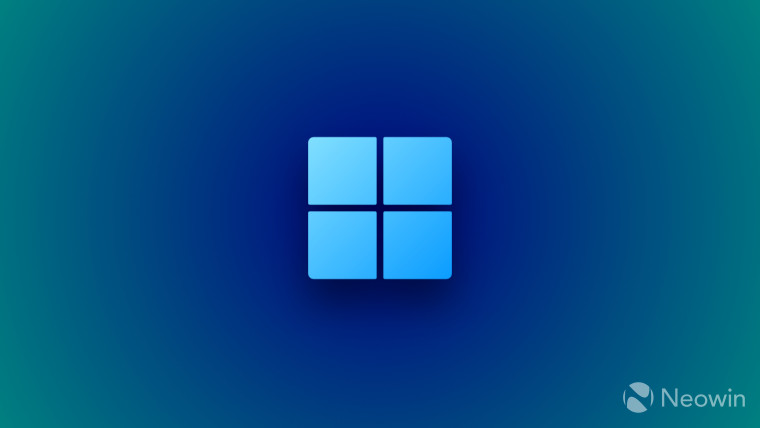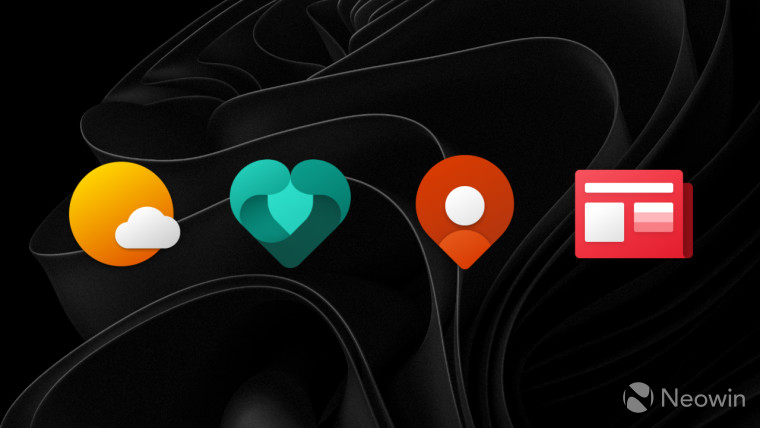
Another week has gone by and it is time yet again to recap important events that occurred in the world of Microsoft in the past seven days. This time around, we have news items related to Microsoft 365 apps and services, some nifty new Windows features, and improvements to Microsoft's various AI initiatives. Without further ado, let's dive into our latest weekly digest covering March 19 - March 24!
Edge Workspaces and other Microsoft 365 updates

Following an announcement last year and availability for enterprise customers, Workspaces in Edge are finally in preview for consumers using the latest version of the browser. Workspaces are a decent way to collaborate with others in a shared browser space with real-time changes. The preview is currently limited to five people per customer but this ceiling will be raised later this Spring. The latest Stable build of Edge 111 also contains improvements to the Sidebar as well as a few security fixes.
Microsoft Teams is set to receive some love in the coming weeks and months too. The Redmond tech firm is working on a range of new features for the collaboration tool including the ability to create offline meetings, support for ratings and reviews in the Teams app store, renaming capabilities, and more. Microsoft has also reminded Surface Hub customers to acquire Teams Rooms licenses for their hardware by July 1 if they still rely on a user subscription license.
There were other smaller improvements to other Microsoft 365 services too. PowerPoint for the web finally supports automatic bullet formatting whereas the Play My Emails feature in Outlook mobile now supports the French and Spanish languages.
We'll round this section off with news about Microsoft Loop. Starting a tease earlier in the week that "something is coming", Microsoft Loop finally launched in public preview a couple of days ago. The platform currently supports work accounts only but will be expanded to personal accounts in the future along with Microsoft 365 Copilot integration.
SHA-3 and other new Windows features

After a few days of radio silence in the cutting-edge Canary Channel, Microsoft finally rolled out a couple of builds. Windows 11 build 25324 introduces support for the SHA-3 family of hash functions, and features a USB4 settings page along with an evolved Widgets board. Another Canary build was rolled out a few hours ago to test the servicing pipeline too. Similarly, Windows Server vNext netted build 25324, which means that it now aligns with Canary versions rather than Dev.
Prior to this, we received Dev Channel build 23419 with live kernel memory dumps via Task Manager, the same USB4 settings page mentioned above, and several known issues. Meanwhile, the Beta Channel received build 22624.1470 again with the same USB4 settings page along with the restoration of seconds in the system tray clock. The Release Preview Channel was also treated to build 22621.1483 (KB5023778) with more ads in the Start menu and a Bing Chat shortcut in Edge.
Then there is also the ongoing list of undocumented and hidden features that Microsoft is privately testing in Windows 11 preview builds for now. The Canary Channel has a new version of ReFS and animated Widget icons, while the Dev Channel has Cloud PC settings and a dedicated shortcut for screen-recording. And although Microsoft has not even announced a "Windows 12" yet, it seems like its next-gen OS is still quite a long way off.
In other relatively smaller updates related to Windows, Microsoft has made some minor updates to the OOBE process and fixed registry and 32-bit app update bugs in a preview update to Windows 11 version 22H2 too. And speaking of preview updates, these will now roll out on a fixed schedule moving forward, that is, the fourth Tuesday of each month. In a similar vein, the 10GB on-premises Unified Update Platform (UUP) rollout will kick off in the next week.
But let's switch gears to bugs in Windows for a bit. There have been reports of SSD and boot performance being slowed down in Windows 11 version 22H2 after the latest Patch Tuesday update. On the security side, the "hardware security not supported" bug in Windows 11 continues to persist and it seems like this and similar issues could be caused by a wonky Microsoft Defender. Another issue that incorrectly indicates that Local Security Authority (LSA) protection is disabled is being investigated by Microsoft too. Security problems might be concerning to some users, especially since a recent report indicated that 18 zero-days were exploited across Microsoft products last year.
Earlier this week, it was also revealed that Windows 10 and Windows 11 are susceptible to Acropalypse, with the built-in Snipping Tool retaining screenshots that you thought you had deleted. A fix for the vulnerability was rolled out on an urgent basis.
Of course, if all of this makes you uncomfortable with using Windows 11, try out the latest version of the OS via Microsoft's free evaluation virtual machines. And also make sure that you follow the company's security guidance, such as that related to DCOM hardening in relevant environments.
Upgrades to Copilots

The race to see who can offer the best search "copilot" is effectively on with Google finally making its Bard AI chatbot available in public preview. A senior Microsoft executive thinks that Google's implementation is far behind Microsoft's own Bing Chat, but being the underdogs in this area for so long, the Redmond tech firm has learned to never underestimate Google.
Bing Chat has been getting tons of improvements in the past few days too. Microsoft has integrated Bing Image Creator in Bing Chat, which enables users to receive AI-generated images through textual prompts. It is fairly buggy for now, but Microsoft has been working on bashing bugs along with implementing chat history. Bing Chat users can even utilize their Microsoft Rewards points to generate images faster.
Microsoft's vision for AI-powered copilots is bigger than just Bing Chat though. It has recently added GPT-4 to its Azure OpenAI Service to facilitate developers in building AI apps, along with announcing DAX Express to assist healthcare workers in automating tedious documentation jobs by leveraging GPT-4.
Additionally, Microsoft has partnered with Nvidia to launch two services on Azure; one for AI and the other for the "metaverse". It has also announced an extension to GitHub Copilot in the form of GitHub Copilot X. As expected, it is powered by GPT-4 and also supports voice chat. The company has outlined plans through which AI can help non-profits in these troubling economic times as well.
Git gud

We had lots of gaming news throughout the course of this week. The headliner is that UK regulator Competition and Markets Authority (CMA) has published its provisional findings for Microsoft's acquisition of Activision Blizzard, determining that the purchase won't affect console gaming. It is still investigating the impact on the cloud gaming sector with the full decision due next month, but this is still a pretty major victory for Microsoft.
Microsoft has its target set on conquering the mobile gaming sector too. Xbox head Phil Spencer recently noted that it will be trivial to add an Xbox storefront to mobile platforms once the App Store and Google Play Store open their doors to third-party storefronts next year under the EU's Digital Markets Act. And yet another space the company will be expanding in further is TV shows/streaming with Microsoft tapping Dune and Doctor Strange writer Jon Spaihts for its upcoming Gears of War adaptation on Netflix.
Over on the indie game development side, dozens of game demos landed via the company's ID@Xbox GDC event. Microsoft also emphasized the benefits of this program, highlighting that over 3,000 developers have earned more than $4 billion through this initiative in the past 10 years. The firm further aims to help game creators from diverse backgrounds moving forward. While we are on the subject of games, it's worth mentioning that Redfall's PlayStation 5 version was canceled following Microsoft's acquisition of ZeniMax, and the company is currently working to reverse its always-online requirement for single-player experiences.
On the hardware front, ViewSonic unveiled a pair of projectors, the first to feature the "Designed for Xbox" branding, they will be available within a few weeks. Microsoft also rolled out the Xbox Sustainability Toolkit to assist developers in reducing carbon footprints.
Finally, over on the subscriptions and services side of the fence, the latest Deals with Gold are headlined by Deathloop and Far Cry, Xbox Free Play Days is offering Far Cry 5, Marvel's Midnight Suns, and Bassmaster Fishing 2022, and MLB The Show 23 is now on Game Pass, along with a couple more titles. However, if console gaming does not interest you at all, check out this Weekend's PC Game Deals, handpicked by our News Editor Pulasthi Ariyasinghe.
Dev Channel

- Weather from Microsoft Start declared most accurate global forecast provider
-
New Windows drivers for Surface Duo offer better Slim Pen support, DisplayPort via USB-C, and more
-
WSATools 1.0.0 brings APK bundle and ARM64 support to Windows 11
-
ViVeTool 0.3.3 is out with ARM support, fixes for the fullreset command, and more
-
CISA has released a Python utility to detect hacking in Microsoft cloud environments
Under the spotlight

This week, Neowin co-founder Steven Parker published his review of the rugged Doogee S100, which hosts a massive 10,800mAh battery. Although the device has its flaws, it is fairly affordable in its category with a price tag of under $450.

On the other hand, News Reporter John Callaham took a trip down memory lane to reminisce about Microsoft's original "Copilot", Clippy. It's a pretty nostalgic piece that you can read here.

And as usual, forum member Adam Bottjen published his latest Tech Tip Tuesday piece, this time covering the topic of changing your PC's screen orientation.
Logging off

Our most interesting news item of the week relates to Google's Project Zero security team publicly disclosing Linux kernel vulnerabilities following Red Hat's inability to backport security fixes to older versions of certain distros. Fortunately, the vulnerabilities in question have local attack vectors which means that they cannot be exploited by an attacker over the internet. There is still no ETA on when the patches will be backported but Project Zero has noted that it may opt for stricter deadlines rather than the standard 90-day process for similar issues in the future.

If you'd like to get a weekly digest of news from Neowin, we have a Newsletter you can sign up to either via the 'Get our newsletter' widget in the sidebar, or through this link.
Missed any of the previous columns? Check them all out at this link.

















